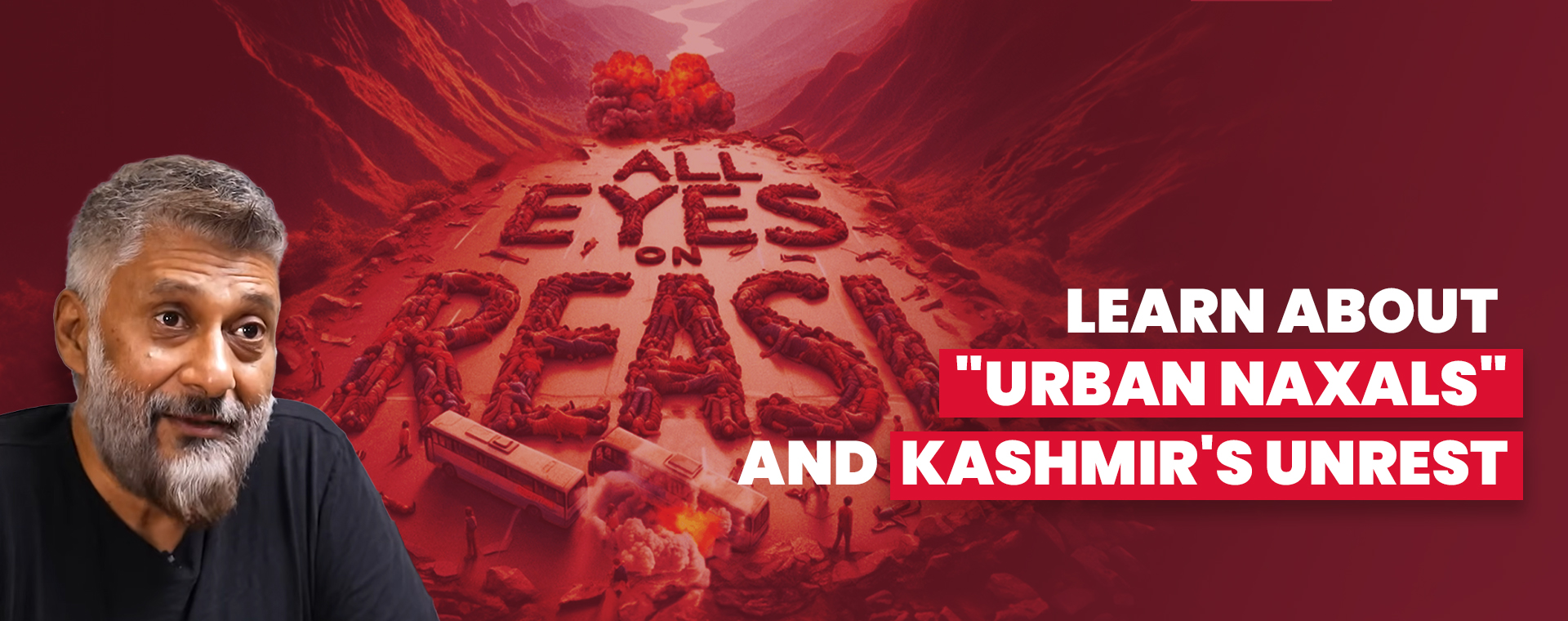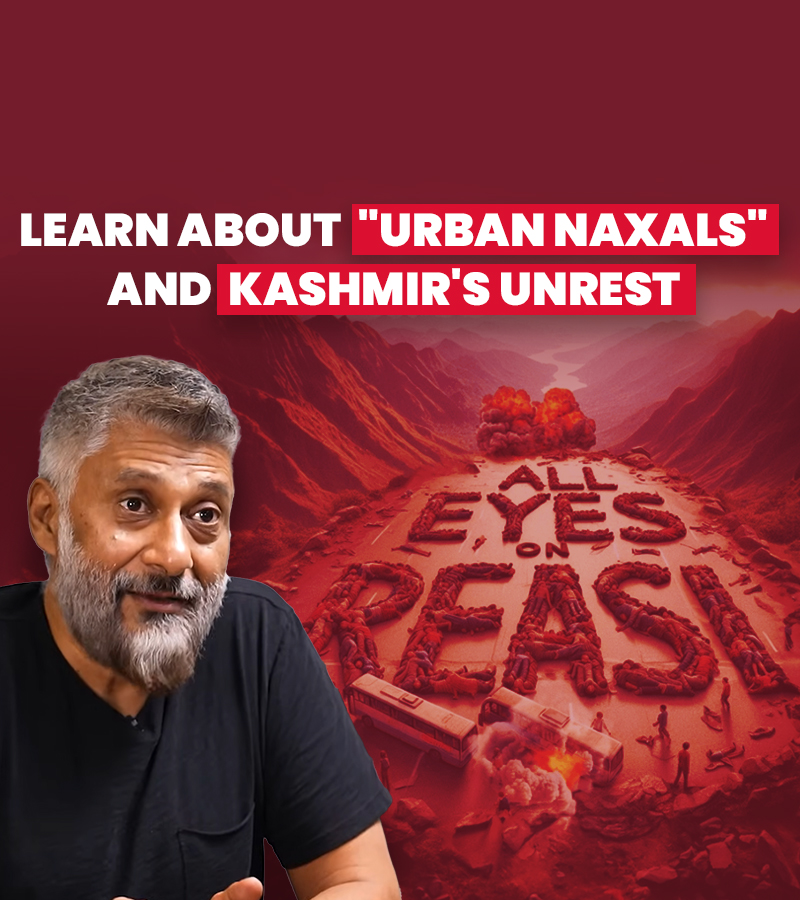

The Narrative War: Unpacking Vivek Agnihotri’s “Explosive Truth of Reasi”
Beyond the Headlines. Unveiling the Narratives Shaping a Complex Conflict.
The Reasi Attack: A Gruesome Reminder
The episode opens with a stark reminder of a similar attack that took place in 2011, where a grenade hurled at a Hindu pilgrimage bus tragically claimed lives and injured many. This incident serves as a springboard for Agnihotri to discuss the ongoing threat of terrorism in India. He emphasizes the cyclical nature of such attacks, with terrorists often resorting to old tactics to inflict maximum damage and fear.
Beyond the Attack: The Ecosystem of Terror
Agnihotri highlights the potential existence of a local support system for terrorism. “This support system,” he suggests, “can provide crucial logistical and ideological backing, enabling terrorist activities to flourish.” Understanding and dismantling these support structures is vital in effectively combating terrorism.
Unveiling the Kashmir Narrative: A Call for Truth
The conversation veers towards Kashmir, a region long plagued by violence and insurgency. Agnihotri emphasizes the importance of acknowledging the truth of the Kashmir genocide, a reference to the exodus of Kashmiri Pandits in the 1990s. He suggests that a complete understanding of the situation requires confronting uncomfortable truths, a theme prevalent throughout his work.
Al-Taqqiya and the Deception Narrative
Agnihotri talks about the concept of “Al-Taqqiya,” a principle in some Islamic schools of thought that allows temporary dissimulation of one’s true beliefs to protect oneself from harm. He suggests that some might employ this principle to mask their true intentions, creating a narrative of peaceful coexistence while harboring extremist ideologies.
Urban Naxals and the Kashmir Conundrum
The episode briefly touches upon the probable involvement of the “Urban Naxals” – a term used to describe left-wing activists critical of the government – in the Kashmir conflict. The specific nature of this involvement is not elaborated upon. Still, it raises questions about the potential convergence of various ideologies that might contribute to the unrest in the region.
A War Against ‘Indians’: The Human Cost of Conflict
Agnihotri emphasizes a crucial point: the targets of terrorism in Kashmir are not simply Hindus or any specific religious group but all Indians. This reframing highlights the broader aim of such attacks – to destabilize the country.
Kashmir Today: A Complex Reality
The episode presents a picture of contemporary Kashmir grappling with the scars of its past and the challenges of the present. While specific details are limited, it underscores the need for a multifaceted approach to address the root causes of the conflict and ensure lasting peace.
Beyond Kashmir: The Anti-India Nexus and the Bengal Question
While the episode doesn’t explicitly mention West Bengal, Agnihotri’s commentary on anti-India elements ignites a broader conversation. Concerns have been raised about potential parallels between the situation in Kashmir and some pockets within West Bengal. However, drawing direct comparisons requires a deeper examination of each region’s historical, social, and political contexts.
Winning the War: A Multifaceted Approach
The episode doesn’t offer a definitive solution to win the war against terrorism. However, it implicitly suggests the need for a multi-pronged approach. This might include:
Addressing root causes: Poverty, lack of opportunity, and feelings of marginalization can create fertile ground for extremist ideologies. Socio-economic development initiatives are crucial.
Combating radicalization: Countering extremist narratives and promoting tolerance are essential. Education and fostering interfaith dialogue can play a vital role.
Strengthening security: Effective law enforcement and intelligence gathering are necessary to disrupt terrorist activities.
Addressing media narratives: Responsible media that promotes peace and understanding is crucial in countering misinformation and hate speech.
The Power of Listening: Engaging with Diverse Narratives
Agnihotri’s episode, while thought-provoking, focuses on a specific narrative. A crucial aspect of understanding complex conflicts like the one in Kashmir is acknowledging the existence of multiple perspectives. Engaging with diverse narratives, even those we find uncomfortable, is essential. This doesn’t equate to endorsing them but allows for a deeper understanding of the underlying grievances and motivations.
The Role of Empathy: Building Bridges, Not Walls
Empathy is a powerful tool in conflict resolution. By attempting to understand the “why” behind the violence, we can begin to build bridges instead of walls. This doesn’t erase the pain inflicted by terrorist acts. Still, it allows for a more nuanced understanding and the possibility of forging a path towards reconciliation.
The Long Road to Peace: A Commitment to Dialogue
There are no quick fixes to long-standing conflicts. Achieving lasting peace in Kashmir requires a sustained commitment to dialogue. This dialogue needs to involve all stakeholders, including the Kashmiri people, the Indian government, and other relevant parties. Open and honest communication is essential to build trust and address core issues.
Conclusion: A Call for Critical Thinking
The Explosive Truth of Reasi is a starting point for a critical conversation, not the definitive answer. Agnihotri’s work encourages viewers to question mainstream narratives and delve deeper. However, it’s essential to critically evaluate the information presented, fact-check claims, and consider alternative perspectives.
Moving Forward: Towards a More Peaceful Future
The path to peace in Kashmir is arduous but possible. By acknowledging the situation’s complexities, fostering empathy, and engaging in constructive dialogue, we can move towards a more peaceful future for the region and India as a whole.






